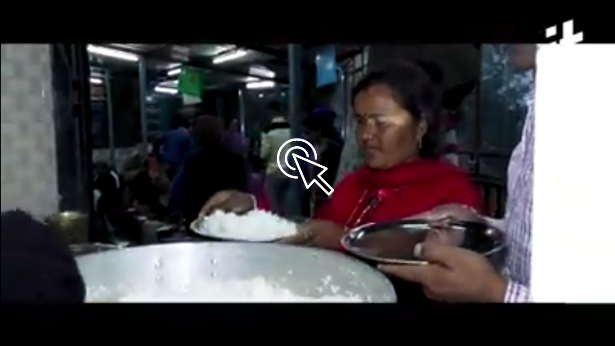My Dream is that no one should sleep Hungry – This SINGH adds a new Definition to Humanity!
He can be seen at the wheel of a funeral van ferrying bodies, feeding patients and their attendants at the Regional Cancer Hospital or organising a blood donation camp. Shimla’s good Samaritan Sarabjeet Singh Bobby is present at all such social events, lending a helping hand to organisers. Literally living by the dictum “Serving humanity […]
He can be seen at the wheel of a funeral van ferrying bodies, feeding patients and their attendants at the Regional Cancer Hospital or organising a blood donation camp. Shimla’s good Samaritan Sarabjeet Singh Bobby is present at all such social events, lending a helping hand to organisers.
Literally living by the dictum “Serving humanity is worship”, Bobby has devoted his life to society. His obsession with social service is so intense that he has no personal life and is popularly referred to as “Sabse Vela Insaan” in the social media where he has a huge following.
His admirers call him “Vela” because unlike other residents who are pre-occupied with their profession, family responsibilities or having a stroll on The Mall, Bobby has time only for social work and deeply involved in one or the other activity. He ferries bodies at odd hours free of cost. He has been running a free langar at the cancer hospital for the past one-and-a-half year.
It all started eight years back as Indira Gandhi Medical College and Hospital did not have a funeral van and Guru Nanak Seva Society was running a van from 10 am to 5 pm but what if somebody died after 5pm.
“I requested the society to allow me to ferry bodies after 5 pm until morning and since then the journey of carrying the bodies cutting across religious and caste barriers started,” says Bobby who finds living humans more dangerous than dead.
“In 2012, we collected Rs 3 lakh from citizens and bought a van and now we give free service. He has ferried more than 4,000 bodies till date,” he said.
But the social work was not limited to ferrying of bodies and he started holding blood donation camps and in the past one decade collected more than 20,000 units of blood. “Blood unites us when somebody gives blood or takes blood, no one enquires about your sex, creed, religion and caste,” he says.
Bobby observed that the only cancer hospital in the state situated near the IGMC had no medical shop and canteen and life was tough for patients and attendants. Boby, president, Almighty Blessings (NGO), who started with free tea and biscuits for attendants and dalia and soup for patients, is providing free langars in evening.
“As the space was small (90 sq.feet), it was not possible for us to make chapatti and earlier we used to get chapattis from our home but gradually people came forward and a chain of Shimla residents donating chapatis was formed (roti bank). Today the chapati banks are situated at Sanjauli, Totu, Lower Bazaar and Lakkar Bazaar and 200 families are involved in the chain who makes 10 chapatis. The latest to be roped in is the RKMV staff who give us chapatis on every Friday,” he said.
“We have provided a platform to people who wish to organise birthday and anniversary parties or wish to share their happy and sad moments with the needy at Rs 4,500,” Bobby said. Another initiative was giving free tea and biscuits at Kamla Nehru Hospital. Bobby, who is a businessman and runs two shops in Lower Bazaar, says “I believe in spirituality and not religion.”
Dream
My dream is that no one should sleep hungry and creation of more chapati banks in Shimla. I wish to built a langer hall, puja hall and sleeping corridors for patients and their attendants.
Words of wisdom
I would like to call upon all spiritual leaders to serve humanity and ask their followers to work for a cause and also donate blood as it saves you from heart attack.
Mission to continue
My eldest son Manav Deep Singh, studying in Class XII, will be the first donor at the blood donation camp to be organised on October 15 when he turns 18. “My son has promised me that he will serve society and on that day, he will drive the van for dead bodies for the first time and I will accompany him on his maiden journey.”








